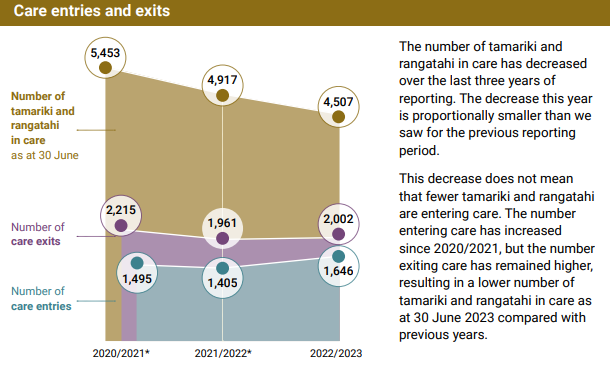

Proposed changes to how children are placed in state care passes first reading in Parliament, despite push back from indigenous advocates.
Unsplash
‘Safety and wellbeing first, culture second’
Children’s Minister Karen Chhour has defended changes to state care placements as a bill to repeal section 7aa of the Oranga Tamariki Act passes its first reading.




Bad habits, burnout, and toxic people: What people are leaving behind before 2026



Pacific Huddle: The lessons, laughs, and love for my people


Bad habits, burnout, and toxic people: What people are leaving behind before 2026

Every child has the right to health, education, and protection and every society has a stake in expanding our tamariki's opportunities in life, says Children’s Minister Karen Chhour.
Her comments come as a bill to repeal section 7AA of the Oranga Tamariki Act passed its first reading earlier this week, seeking to remove obligations to consider a child’s cultural background when placing them in state care.
“Culture’s a ‘nice to have’, not a ‘must have’," Chhour said. “Our young people deserve to wake up every morning knowing that they’re going to be safe.
Watch Karen Chhour's interview below.
“We need to look for whānau, hapu or iwi, but we need to make sure it’s safe, and in our care decisions, we need to make sure that we’re looking at safety and wellbeing first, culture second.”
This change comes despite pushback from the Waitangi Tribunal, who released a report saying the repeal was a clear breach of Te Tiriti o Waitangi and would cause harm to vulnerable children.
Speaking to William Terite on Pacific Mornings, Chhour said culture was important, and the legislation caused “unintended consequences of how it was implemented and bad practice that came from it”.
She listed the case of six-year-old Moana who was to be removed from her original placement after four years and rehomed in a Māori household in another city, and four children who were removed from their Pākehā placement in 2019, prompting accusations of ‘reverse racism’.
“If you're told it's a forever home, children have that connection and have that love and stability, it should be a forever home. We shouldn't be in the background fighting them and constantly making them feel like they're incompetent and unable to raise these kids.”
Labour’s deputy leader, Carmel Sepuloni, said those incidents were horrific and shameful, but encouraged Chhour to heed the warnings from the Waitangi Tribunal and advice from the experts.
“What advice did she get from officials? What have lawyers told her regarding 7AA? Many of the examples that she's given have been a few personal examples from people which is anecdotal, as opposed to a broad evidence-based to support her change.
“We've got to listen to the experts and the experts are telling her not to do this.”
Sepuloni was in the House for some of the debate and said she was “flabbergasted” by some of the comments.
“Seventy per cent of children in Oranga Tamariki care are Māori, when you have iwi leaders, when you’ve got Māori lawyers all coming out and saying that this particular section is really important for their wellbeing, but yet we have a government that is saying ‘No, it’s not’, you stand there, it’s just unbelievable.

Image from Aroturuki Tamariki|Independent Children's Monitor 2022/2023 report
“One of the statements from the Prime Minister during Question Time was ‘We're choosing children's well-being over their cultural needs’. Well, actually those two things are not mutually exclusive and as Pacific, we know that meeting our children's cultural needs goes a long way to helping achieve their well-being as well.”
What do the numbers tell us?
As of June last year, 4507 children and youth were in state care, 17 per cent of these have Pacific heritage, and 69 per cent Māori. More than a third of the placements are with family or extended whānau.
In the past two years, the number of children in state care was 5453, but Chhour said the recent drop did not tell the full story.
“We had the last government saying how wonderful they were because we had this massive drop, but we’ve also had a huge rise in harm to our children.
“So we've got less kids in care, which is a good thing if they're in safe homes, but we've got more kids being hurt. So are we actually making the right decisions for our young people?”
Chhour insists the repeal isn't going to have any negative impact on outcomes for Pacific or Māori children.
"I don't think it will have any impact at all. The partnerships and the enabling community partnerships that we've created, they're all going to continue. Nothing's going to change. If it's working well in our community and it's for the betterment of our children, it must continue."
She says Oranga Tamariki must be responsible for their decisions.
"I've also made it clear that we need to devolve back to community more, but there has to be accountability with that devolution. It can't just be handing over the responsibility with no oversight. So it's finding that middle ground and making sure that we're getting that right."